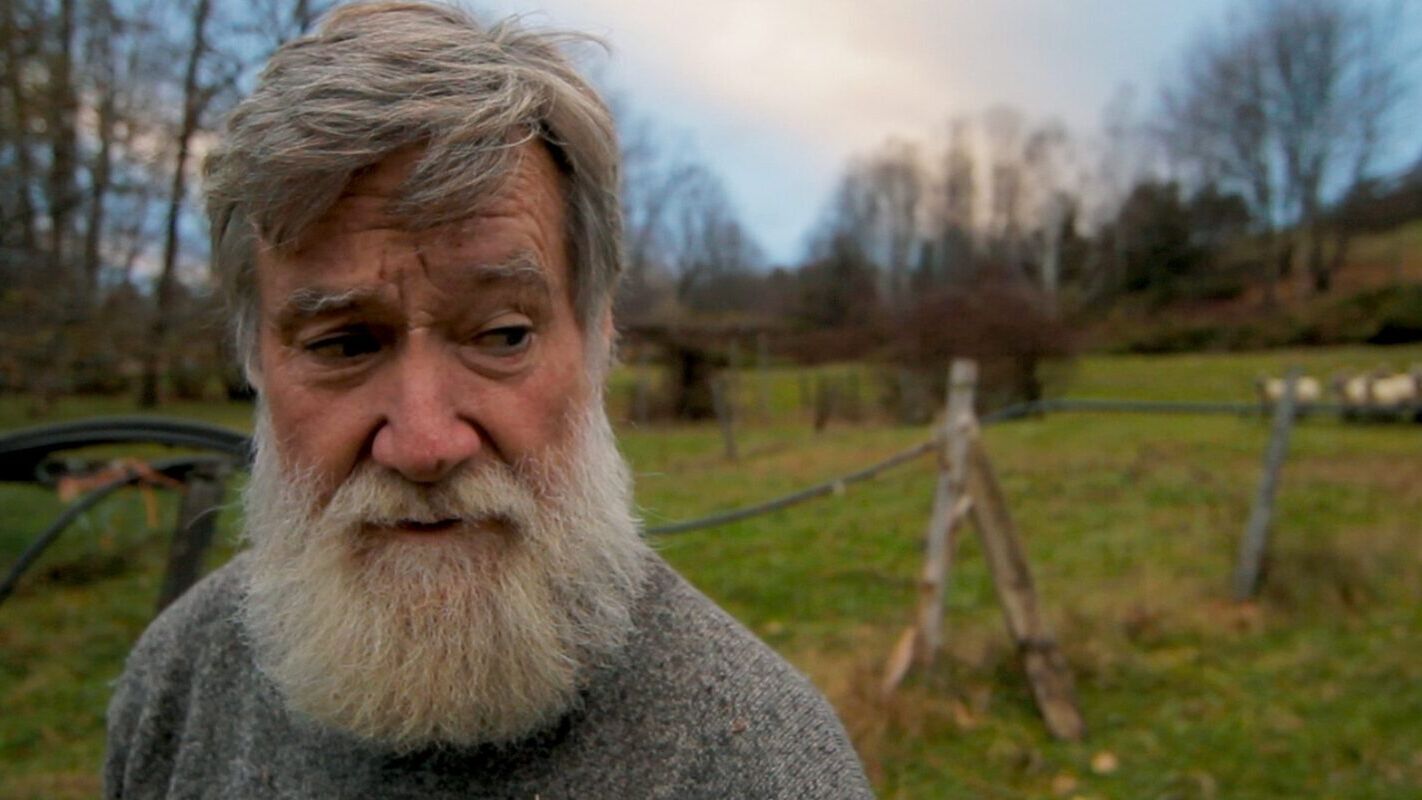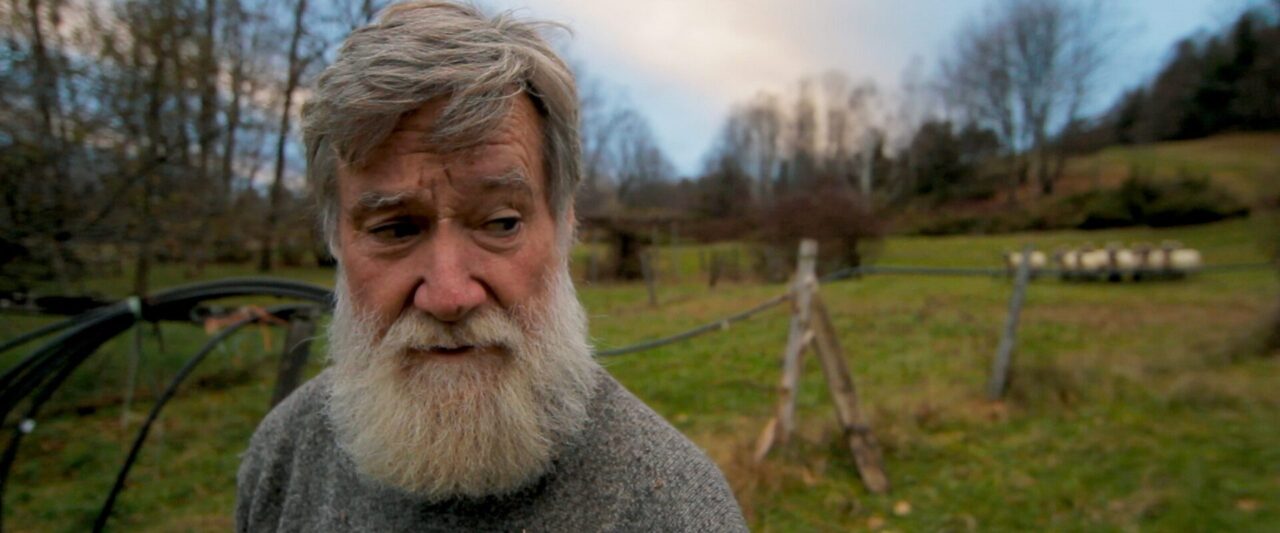His stories range in heaviness, from the time he lost his fingers, to singing every word of West Side Story, yet are equally as impactful and sympathetic to hear.
At one point in our lives, I’m sure many of us have thought about escaping a 9-5 job and all of the responsibility that comes with it, to live as a farmer–at least I know the thought has crossed my mind. Trading in the close proximity of neighbors and the hustle & bustle of the city for acres of open air and grazing cattle seems like a welcome change to the constraints of daily life. In director Tony Stone’s documentary, ‘Peter and the Farm,’ we are introduced to one such man who has lived his whole life on a farm, and for 33 years, he has lived there alone. This is the story of the wonderful and wacky Peter Dunning.
Peter is the quintessential image of a salt-of-the-earth worker- his leathery skin and dirty fingernails show the years of sacrifice and hard work that he has put into his 187-acre farm called “Mile Hill” in rural Vermont, where he produces organically raised pork, lamb, beef, and cow’s milk. The bodily sacrifices are only one result of his hard knock life; Peter’s outlandish attitude and hard-drinking ways have driven away three wives and four children. Without going into specifics, regret is painted all over his face, especially when it comes to his children and his dashed dreams of one day leaving them his most prized possession, his farm.
This is a portrait of a man who is longing for human connection but is his own worst enemy, much in the same vein as Foxcatcher Farms’ John du Pont. At his lowest point, his breakdowns consist of handwritten suicide notes in which he describes feeling “trapped in the openness, this paradise in the midst of ugliness.” There are many occasions where he converses with the camera crew, breaking the fourth wall of filmmaking. At one point, he admits to never really trusting anyone in his life and considers the crew he has just met (and will probably never see again) to be his closest confidants. Peter is a tortured man, yet a strikingly poignant artist. His anecdotes are the film’s narrative thread. His stories range from heaviness, from the time he lost his fingers, to singing every word of West Side Story, yet are equally as impactful and sympathetic to hear.
Mile Hill Farm is an idyllic, picturesque utopia where the lush grass vibrates with color and you can practically feel the cutting winds. This image is quite a juxtaposition to the scenes where Peter rounds up and slits a sheep’s throat with his bare hands, skins and forcefully rips off the dead animal’s wool, guts the intestines (which he feeds to the pigs), and finally, hangs it up to dry out for meat. Yes, it is graphic and no, it is not censored, however, Peter performs this brutal task as humanely as possible. Even with his persuasive monologues about how we, as humans, are programmed to live off of meat and eating animals is just going back to our roots, it doesn’t make it any easier to watch.
Director Tony Stone, who is also credited as the film’s cinematographer alongside Nathan Corbin, uses melodic camera movements capture both the beauty of the farm and the spontaneity of Peter, perfectly. Peter is portrayed as the type of man you want to simultaneously hug and run from, yet there is no denying that his infectious energy is what makes this film such a compelling watch.
‘Peter and the Farm’ is not rated. 91 minutes. Available on iTunes and VOD now, and opening in select theaters on Friday, November 18th.
Morgan Rojas
Certified fresh. For disclosure purposes, Morgan currently runs PR at PRETTYBIRD and Ventureland.


